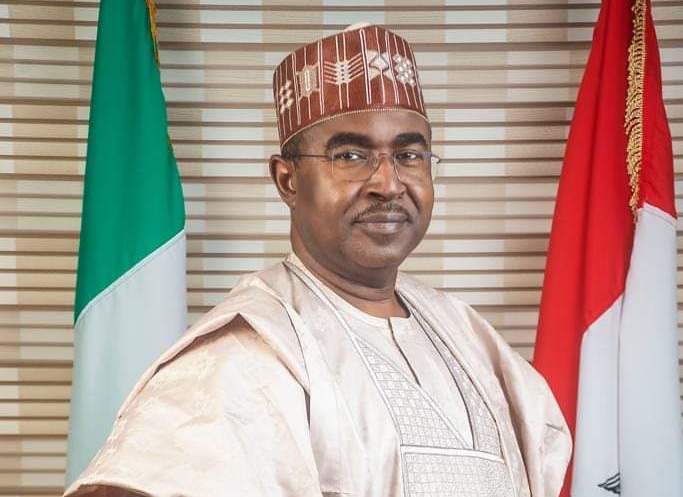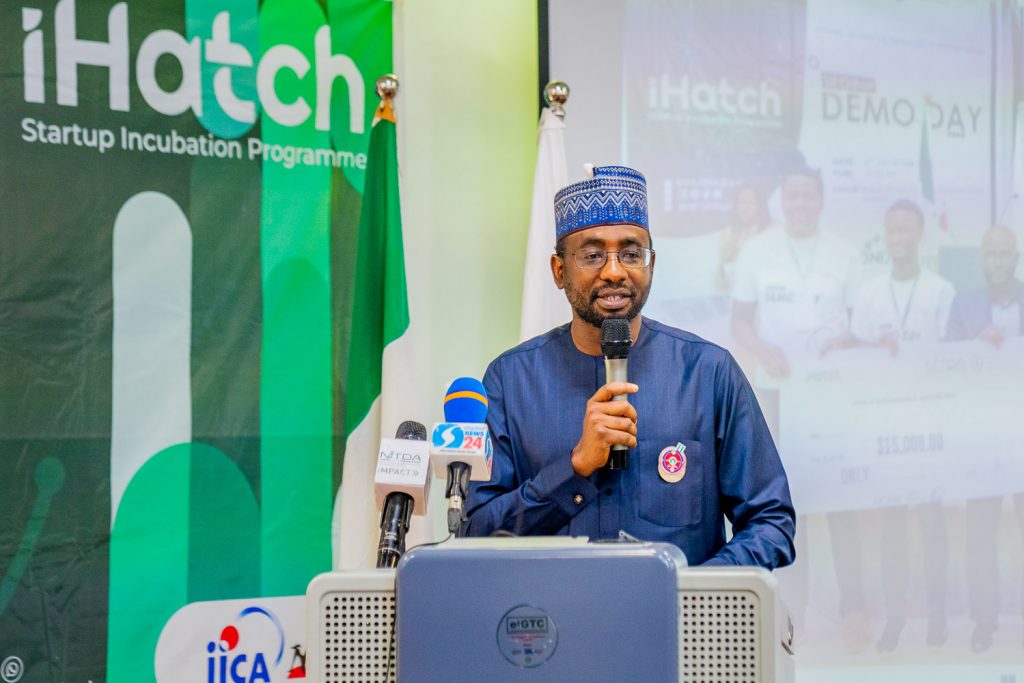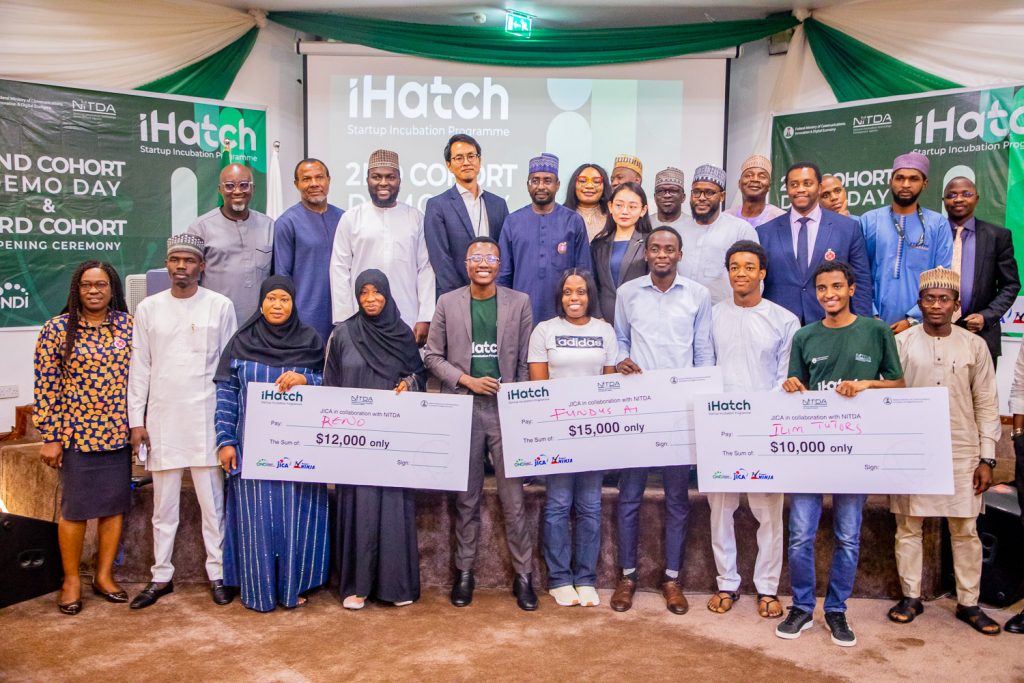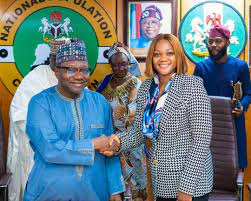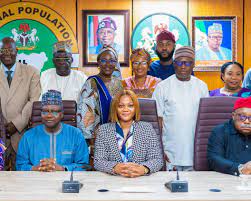Opinion
To Protect Life, Stop Hard drugs
Published
1 year agoon
To Protect Life, Stop Hard drugs
By Emmanuel Onwubiko
Certain occurrences compel the rational thinker to locate the reason for them within the context of altered state of mind or under some influences such as alcohol or hard drugs.
Two of those happened yesterday in Lagos and Enugu, simultaneously.
In Enugu, former capital of Igbo region of Nigeria, No fewer than 10 persons reportedly died in a ghastly motor accident along Enugu-Onitsha Expressway, Enugu State. The immediate and remote causes are interwoven and located within the faultline of the driver who had momentary loss of visionary judgment probably impaired by some external influences not unconnected with drugs.
It was gathered that the accident happened around 9am near the CBN Bus Stop, in Enugu.
The 18-seater bus with Enugu registration number, XL884 ENU had collided with a trailer truck carrying cement.
An eyewitness told the media that the two vehicles were driving on a single lane due to potholes that have dotted the other lane of the road.
According to the eyewitness identified as Ifeanyi Ejike, the bus was filled with commuters from Abakpa, in Enugu East Local Government Area and was heading to New Market community when the accident occurred.
“The driver whose name we have learnt is Simeon was coming from Abakpa and made attempt to overtake another vehicle in his front that was emitting too much smoke from it’s exhausts. This circumstance could have led to limited vision of the driver.
“As he made an attempt to overtake the vehicle, the trailer was very close and the next thing we heard was a loud sound and the bus was completely damaged. I don’t know how many survived but I counted eight dead bodies on the floor,” he said.
Meanwhile, victims and deceased bodies have been rushed to Enugu State University Teaching Hospital, ESUT-Parklane.
The second scenario happened in Nigeria’s former political capital of Lagos State. The Lagos State Emergency Management Agency and the Nigerian Railway Corporation have blamed the driver of a Lagos State Government staff bus for a fatal train accident which killed six people and injured 96 in the PWD area of the state on Thursday.
Tragedy struck in Lagos a few minutes before 8am on Thursday when a passenger train collided with a fully-loaded staff bus belonging to the Lagos State Government at the PWD rail crossing, off the Lagos-Abeokuta Expressway.
Giving reasons for the deadly crash, the Permanent Secretary of LASEMA, Dr Olufemi Oke-Osanyintolu, told journalists that the bus driver ignored signals from the NRC officials as he was in a hurry to cross the rail.
Also, the NRC, in a statement by its Deputy Director Public Relations, Yakub Mahmood, said the bus failed to obey the instruction of the corporation officials as he overtook other vehicles waiting for the train to pass.
The ill-fated bus with registration no 04A- 48LA was navigating its way to connect the Government Residential Area, Ikeja en route to the state secretariat, Alausa, when it collided with the train at the PWD rail crossing.
The bus was said to be coming from Isolo while the train was heading to Ido from Ijoko, Ogun State.
According to eyewitnesses, the train dragged the bus on its rail for about 100 metres from PWD to Sogunle before getting stuck.
Some panic-stricken passengers of the bus, especially those close to the exit doors, reportedly made frantic efforts to jump off the bus being dragged by the train.
By the time the train and the bus finally stopped on the rail, the bus passengers fell upon one another in their attempts to find their way out of the trapped vehicle. Six passengers died.
What these tragic stories of fatal accidents tell us is the need for sanity on the part of drivers of commercial and publicly owned vehicles. Train drivers also need to be drug free.
The behavioural pattern of the Lagos bus driver as graphically depicted by Lagos government officials and that of the bus driver in Enugu as narrated by eye witnesses, perfectly reminds us about the need for drug free professional and private operations of vehicles on our roads.
This conclusion can easily be deduced when probing question of how a fully functional mind driving a fully loaded bus with over one hundred passengers made up of men, women, children and aged, could have decided to go ahead of a rail crossing fully aware that a speedy train was approaching.
Add it to the fact that the driver of that ill fated Lagos State Government’s staff bus, failed to obey a signal by Railway staff urging him to wait just like many other vehicles before him, but he navigated and proceeded on this tragic accident which is wholly as a result of poor mental judgment that most probably is altered by certain substances, if critically examined (I stand to be contradicted).
This can only be possible if the functionality of the mind is altered and the fastest way to reach altered state of mind is probably through inhalation of hard drugs.
This is why supporting the works of the Brigadier-General Mohammed Buba Marwa –led National Drug Law Enforcement Agency (NDLEA), is pivotal to achieving safer roads and rails, and fundamentally reduced crime rates.
There is no doubt that the efficient protection of life in accordance with the Universal principles of Human Rights encapsulated in both the Universal Declarations of Human Rights and chapter 4 of the Nigerian Constitution, can be actualised if we combat drug addictions vigorously.
The NDLEA by introducing two things out of the many, has signalled her readiness to help protect life.
The establishment of rehabilitation centres and the 24 hours free telephone centres for drug addicts, are measures that must be sustained and adequately funded by both government and private businesses that have distinguished themselves as patriotic and transparent brands.
Besides, the issue of the expansion of sophisticated crimes that are aided by hard drugs is a global phenomenon. Some recent events points this fact succinctly.
Just a few examples from other recent events around the World will suffice to establish the nexus between hard drug addiction and sophisticated crimes or avoidable errors in Human judgement.
In Greece, a train station manager permitted two trains to travel from the opposite sides of each other at the same time. The result of course was catastrophic to a level that the President of Greece had to publicly apologise to families of the victims, ordered the arrest and prosecution of the train station manager and then the transportation Minister who also apologised profusely for the accident, resigned from his public post.
Thirty six passengers of the train in Greece, died just as report says the Transport Minister Kostas Karamanlis resigned Wednesday, saying he felt it was his “duty” to step down “as a basic indication of respect for the memory of the people who died so unfairly.”
The cause of the crash near the Vale of Tempe, about 380 kilometers (235 miles) north of Athens, was not immediately clear, but the stationmaster in the nearby city of Larissa was arrested Wednesday. The police did not release his name.
Media accounts from Greece, say, another two people have been detained for questioning.
Greece media reports that It’s unclear at what speed the two trains were travelling when they ran into each other just before midnight Tuesday, but state broadcaster ERT said it was more than 140 kilometers per hour (87 miles per hour).
However, survivors inyerviewed by the Press in Greece said the impact threw several passengers through the windows of train cars. ERT quoted rescuers saying they found some victims’ bodies 30-40 meters (100-130 feet) from the impact site.
One of the eye witnesses Stefanos Gogakos said it felt like an explosion, while from his rear carriage flames could be seen at the front of the train.
“The glass in the windows shattered and fell on top of us,” he told ERT. “My head hit the roof of the carriage with the jolt. Some people started to climb out through the windows because there was smoke in the carriage. The doors were closed but in a few minutes train staff opened them and we got out.”
Sadly, multiple cars derailed and at least three burst into flames. On Wednesday, one carriage lay atop the crumpled remains of another two.
Earlier today’s morning, a mass shooter killed about 7 Jehovah’s witness worshippers in a hall in Hamburg, Germany. They said the gunman acted alone in Thursday’s attack, and is also thought to be dead. His motives are unknown.
Within this week too in the border area between the USA and Mexico, some drug gangs seized four US citizens who were in Mexico as medical tourists and report said two of those kidnapped were killed.
Sky News reported that the group of four US citizens had travelled from South Carolina so one of them could get a tummy tuck from a Matamoros doctor.
Two others were rescued alive by the Mexican police and taken back to the United States of America.
Specifically, the train accident in Greece, the kidnapping of the Americans in Mexico, and the mass shooting in Germany, can all be located within the context of violent crimes occasioned by most probably by hard drugs.
This is because, it can only take a demented but altered mind, for someone to violently kidnap, open fire in a crowded church or for a train station manager to authorise simultaneously two trains to travel into and out of same station on the rail track at the same time.
Readers can now note that we began this reflection with two tragic accidents in the Nigerian cities of Lagos and Enugu. We then zeroed in on certain similar events that happened within this same period. We then hazarded a guess that the genesis of all these can be traced to drug abuses. We also argued strongly for continuous public support of the incredible works that the NDLEA is doing.
Those facts aforementioned will inevitably lead us to another major documentary on hard drugs in a part of Africa as done by the British Broadcasting Corporation on March 7th 2023. The lesson for us is the need to be vigilant and never allow any government st every level in Nigeria tolerate the control of the public space by drug cartels and barons. The Guardian of Nigeria reported thus: “Known for its coral reefs and beautiful beaches, Seychelles, a tropical paradise located off the coast of east Africa, is visited by thousands of tourists. Yet, beyond the country’s multi-million dollar tourist industry, BBC Africa Eye shines a light on its heroin epidemic.”
In a new investigation by BBC Africa Eye, ‘Seychelles, Heroin and Me’ pieces together a complex picture of how political and socio-economic factors, including poverty and a lack of rehabilitation centres, are contributing to what is now a drug epidemic.
According to Seychelles’ government, based on population, Seychelles – which is made up of 115 islands – has the biggest heroin problem in the world, with around 10 per cent of Seychellois dependent on the drug.
Presented by Joseph Fady Banane, the Seychellois support worker was one of the 10 per cent. Now free of heroin, he uses his experience and role as a support worker to show viewers the true extent of the drug epidemic, while confronting his own painful past and reconnecting with the people he loves.
Meeting drug users, dealers, government officials and the communities caught in the middle, the film captures Fady’s journey as he gains first-hand access to their stories.
He told BBC Africa Eye how he was introduced to drugs: “I was 27 when I first took heroin. Business was not picking up. Sitting outside, I decided to try my first couple of smokes, and that was it for five years. I still don’t know why I started smoking heroin, but part of it was just because I could – drugs were everywhere.” He added: “I became a stranger to my own mum, and my son was taken away.”
Throughout the film, individuals share details on the grueling ripple effect of drugs in their communities and families.
Ravinia Jean, a mother, shares the impact of her son’s death, Tony, who was heroin-dependent and a friend of Fady’s.
“It is hard…it’s very painful.” She revealed her second son, Jude, is also using heroin and has been in and out of prison, where he is still able to buy the drug on credit. She said: “Parents have to pay for it because they will send people to collect the money…Of course, you’re scared. They threaten you. They said they will kill him.”
However, there is still hope for drug-users like Jude. The documentary follows Jude’s journey towards recovery as he finally visits a councillor with hopes to recover from heroin-dependency.
The documentary also captures the common reality of drug-dependency passed from parents to children. Two brothers, Stefan and Roy (not their real names) are heroin-dependent – so was their mother. Stefan’s drug usage started from around the age of 12.
These aforementioned realities of the consequences of drugs that permeate the families over time is not strange to us in Nigeria.
During a recent anti drugs sensitisation programme my organisation-HUMAN RIGHTS WRITERS ASSOCIATION OF NIGERIA (HURIWA) did with support from the NDLEA, we heard first hand from pupils of primary schools in Aba abd Owerri who narrated how their poor parents engage in drugs and do drugs in their presence.
This is the reason for urging Nigerians in their millions to back the NDLEA’s two way methodologies of combating this addiction to hard drugs By way of setting up Counselling centres through free phone services for drug addicts and the setting up of drug rehabilitation centres across Nigeria.
Chairman/Chief Executive of the National Drug Law Enforcement Agency (NDLEA), Brig. Gen. Mohamed Buba Marwa (Rtd) had said that drug users and addicts no longer have excuses not to seek treatment with the commissioning of a modern 24/7 call centre set up to attend to Nigerians having drug challenges from all parts of the country.
Marwa spoke at the commissioning of the NDLEA call centre with a toll-free helpline manned by professionals and experts in counselling, psychotherapy, psychology and psychiatry among others in Abuja on Thursday, June 30, 2022.
According to him, “the provision of this toll-free helpline is a milestone in our resolve to broaden access to quality health care for drug users in the country. This has become a necessity and a strategic intervention in our determined effort to bring under control the increasing cases of drug use disorder and related health concerns.”
He said though the country has treatment centres, while NDLEA has 26 treatment facilities across its commands, they are nevertheless grossly inadequate in the face of statistics of drug users and those suffering from drug use disorder
“NDLEA recognised the importance of providing a safety bubble for users who ordinarily cannot access the conventional treatment services at established rehabilitation centres due to poverty, social stigma and the resultant discrimination attached to being an identified drug user in society, among other factors. Therefore, the inevitability and the utility of a toll-free helpline that guarantees anonymity, confidentiality and safety, as a motivation for those in need of health help to freely seek such.
“The NDLEA Call Centre is manned by a team of licensed and credible clinical psychologists, counsellors, support workers and mental health professionals who would provide the needed support in aiding recovery, managing social and emotional problems, improving quality of life and enhancing performance and productivity of the users of the service. With its state-of-the-art equipment and its team of highly trained professionals in substance abuse disorder, this centre offers a teletherapy service according to global best practices.
“The benefit of the Call Centre is manifolds. Aside from helping us in providing telephone-based psychosocial support and addiction services in the War Against Drug Abuse (WADA), it will at the same time provide us with information that will deepen our understanding of the country’s dynamics of drug use and potentially put us ahead of the game.
“To those in need of help, we open a new chapter today, whereby help is just a phone call away. We have simplified the helpline service by making it language-sensitive whereby callers have the choice of language including English, Pidgin, Hausa, Yoruba and Igbo. And very importantly, the helpline is open 24/7. A call to the helpline, 0800 1020 3040, elicits a prompt response from professionals, regardless of the time or geographic location.
The calls open the door to engagements with counsellors, followed by service orientation that leads to case management, at which point the engagement moves from telephone assessment to follow-up therapy sessions and referral. This seamless process ends in Resolution and Aftercare Follow-Up. Given the simplicity of the process, there is no valid excuse for not accessing treatment by drug users and their concerned families. We expect those concerned to take advantage of this opportunity.”
Also, the National Drug Law Enforcement Agency (NDLEA) says it will establish six standard rehabilitation centres in each geo-political zone of Nigeria starting from 2022.
The Chairman/Chief Executive of the NDLEA, Brig. Gen. Mohamed Buba Marwa (Rtd) disclosed this at the 5th Biennial National Symposium on Drugs and Drug Policy in Nigeria.
Marwa, who was the Guest of Honour at the symposium, said that the decision was part of efforts to treat the high number of persons suffering from drug addiction in the country.
He said that when established, the centres would complement various efforts by the Federal, State and Local Governments.
Marwa said that three of the centres would start next year (this year 2023) as already proposed in the 2022 budget.
“Substance use and abuse around the world including Nigeria is on the increase in terms of the proportion of the world population.
“Findings from the National Drug Use Survey (2018) conducted by the UNODC revealed that 14.4 per cent or 14.3 million Nigerians aged 15 to 64 years had used a psychoactive substance in the past year for non-medical purposes.
“This means that One in Seven persons has used some substances other than alcohol and tobacco.
“More worrisome is the finding that among every four drug users in Nigeria, one is a woman.
“Above findings of the survey by United Nations Office on Drugs and Crime (UNODC) give a troubling portrait of drug abuse in Nigeria and we can no longer live in denial that Nigeria has a thriving illicit drug culture.”
General Marwa said that the agency had also appealed to state governments to build more habitation centers, as existing ones were inadequate.
The NDLEA chairman added that there was no doubt that substance use was impacting negatively on the individual, family and the society in general.
“Substance abuse affects the physical, social and psychological levels of the user and family members.
“Evidence has shown that COVID-19 infections are higher or more common with people diagnosed with Substance Use Disorders (SUD).
“Hence, addiction care must be reinforced in order to avoid complications of SUD and COVID-19.
“Reducing the demand for illicit drugs in the society depends to a large extent on the successful treatment of existing drug users.
“This fact accounts for the shift in global drug policy viz the treatment of drug problems as a public health issue.
“Consequently, we have operationalised our Standard Practice and Policy Guidelines, a treatment and rehabilitation document developed in conjunction with UNODC.
“The document, like a field manual, provides synergy among our counsellors and further boosts our capability at treatment and rehabilitation,”Marwa said.
He enjoined all stakeholders and individuals to join NDLEA war against the growing threat of substance in the nation, saying that NDLEA could not do it alone.
There is the need for government agencies such as the Road Safety Commission, the Nigerian Railways, the Nigerian Police, Correctional centres and the Youths ministry including the NYSC, to find a way to partner actively with the NDLEA so road users caught in conflict with the law are examined for drugs, police operatives examined for drugs before each operation that involves handling of weapons and Railway drivers also need to undego compulsory drug tests. Nigerian prison institutions are saturated with hard drugs. This phenomenon is a disturbing scenario but not so much is done by government and ironically, both the staff of Correctional homes and inmates are in deep unholy communion to commercialise hard drugs amongst inmates. The NDLEA needs to also work on sanitising the prisons of drugs.
Conclusively therefore, supporting the NDLEA to execute their mandates is a patriotic duty and indeed a civil duty for all law abiding Citizens of Nigeria. I suggest that amongst the priority areas for determining who wins national honours in Nigeria is the underlying need to make it mandatory that nominees show causes they have executed regarding the campaign against hard drugs.
*EMMANUEL ONWUBIKO is head of the HUMAN RIGHTS WRITERS ASSOCIATION OF NIGERIA and was NATIONAL COMMISSIONER OF THE NATIONAL HUMAN RIGHTS COMMISSION OF NIGERIA.
You may like
Opinion
IHATCH: JAPAN GOVERNMENT TASK TO LEVERAGE NIGERIA’S YOUTHFUL POPULATION- DG NITDA
Published
5 months agoon
December 3, 2023
By James Ishaku
As part of the current administration of President Bola Tinubu’s commitment towards creating meaningful opportunities for Nigerian youths, the Director General Of the National Information Technology Development Agency (NITDA), Kashifu Inuwa CCIE has called on the government of Japan to leverage on the youthful population through strategic talent partnership that will nurture and build a workforce that can be exported.
The DG made the call at the Ihatch startup incubation programme 2nd cohort demo day and 3rd cohort opening ceremony organised by the subsidiary of the agency, Office for Nigerian Digital Innovation (ONDI), in partnership with Japan International Corporation Agency (JICA) in Abuja.
Inuwa noted that the ihatch 5-month free intensive incubation programme executed by the ONDI and hosted within the National Centre for Artificial Intelligence and Robotics (NCAIR) is designed to help Nigerian tech entrepreneurs refine their business ideas through a series of coaching, lectures, and booth camps to develop scalable and adaptable business models that willfocus on youth, innovation, entrepreneurship, and technology.
He added that the incubation programme will be held simultaneously in Abuja, Lagos, Port Harcourt, Gombe, and Kano and JICA has agreed to extend the Fourth Cohort across each of the 36 States and the FCT. This is to enable wider reach and to stimulate the startup ecosystems across the States.
The DG stated that not fewer than 1,218 applications were received for the Second Cohort and the number was pruned down to 8 startups, comprising 16 persons, a Founder and Co-Founder for each startup, after undergoing levels of rigorous selection process conducted by a panel of judges, comprising experts in diverse areas of technology and innovative entrepreneurship.
He explained that the selection process assessed the startups’ ideas based on the criteria of profitability, scalability, social impact, idea technique, competitive advantage, experience, and a clearly defined future roadmap.
Inuwa further revealed that a total of 11,183 applications were received from across the 6 geopolitical zones for the Third Cohort. This culminated in the selection of the top 8 startups, comprising 16 founders in total that will participate in the Third Cohort that was launched.
He added that 16 startups that participated in the first and second cohorts of the iHatch incubation programme have moved on to achieve remarkable success in the areas of job creation, funding, participation in events, and valuable partnerships which have created a combined total of 179 direct jobs in the span of agriculture, health, education, and e-commerce sectors.
The DG further asserted that apart from the total grant of US$45,000 (US$15,000 each) for Proof of Concept (POC) to the top 3 startups in the first cohort, some of the startups have raised some funding through other sources. Xolani Health (a health tech startup from the first cohort) secured a grant worth US$155,000, BetaLife (a health tech startup from the first cohort) secured an angel investment of US$60,000, Gifty (an e-commerce startup from the second cohort) got a grant of USD$8,000 while two other startups from the first and second cohorts respectively, raised a combined total grant of US$6,000.
Inuwa affirmed the agency’s commitment to working with relevant stakeholders and partners towards the successful implementation of the Nigeria Startup Act (NSA) which will accelerate innovation and provide much-needed jobs for our teeming youths. Leaving nothing to chance in our resolve to nurture the entrepreneurial spirit in our youth to catalyze the Nigerian digital economy to the next level.
The Honourable Minister, Federal Ministry of Industry, Trade and Investment, Doris Nkiruka Uzoka-Anite, represented by National Coordinator, National Talent Export Programme, Dr Femi Adeluyi, applauded NITDA for the various initiatives and programs put in place for the advancement of the tech ecosystem in the country.
Anite noted that the NITDA DG at the Digital Nigeria International Conference 2023 edition harped on the need for Nigeria to become the talent destination of the world where countries will come to seek a workforce that will work with them towards achieving their goals and objectives.
She added that “technology is a pivotal tool in all aspects of life which cannot be overemphasized and the green transition scoreboard global total has reached about $7.13 trillion for export and about $6.6 trillion for importation, the important aspect is that 54% of these activities is digitally edible and prepares people to be effective and efficient in the different sector of the economy is laudable”.
The Minister also appreciated JICA for its relentless efforts toward the advancement of the tech ecosystem in the area of automobile, development, training, scholarships, interventions and a lot more which has impacted the citizens directly or indirectly.
The Ambassador of Japan to Nigeria, Matsunaga Kazuyoshi, represented by Yuzurio Susumu Chief of Nigeria Office in his remarks stated that Nigeria is the most popular country in Africa and the heart hub of entrepreneurship activities aimed towards the advancement of the country.
He added, “With all the challenges faced by insecurity, and limited infrastructures in the country, Nigerian startups are demonstrating remarkable creativity and resilience in developing solutions that other critical social issues in areas such as education, transportation, healthcare and finance”.
He added that the present administration has identified the transformation potential of startups and digitization making it a key factor in diversifying the Nigerian economy from its dependence on oil.
The Ambassador pointed out that startups are seen as a catalyst for business transformation, bringing fresh ideas, innovative technologies and new employment opportunities. Japan has the longest history of technological innovation and entrepreneurship has a significant role in supporting the Nigerian system.
Among those who attended were representatives from both the private and public and the top three (3) startups emerged with cash prices to Fundus AI 1st postion $15,000.00, Reno 2nd postion with $12,000.00 and Ilim Tutors 3rd postion $10,000.00 respectively.
Coker – Odusote: 100 Days at the Helm of NIMC
By Walter Duru, Ph.D
It was Albert Einstein that once said that “setting an example is not the main means of influencing another, it is the only means.” That sentiment expressed by Einstein is the primary essence behind the theory of transformational leadership, which requires passion, charisma, and the ability to motivate others. Transformational leaders are usually very authentic, emotionally intelligent, great listeners, results-focused, visionary, and self-aware.
In just 100 days at the helm of the National Identity Management Commission (NIMC), Engr. Abisoye Coker-Odusote has ushered in a new era of transformational leadership, leaving an indelible mark on the organization. Her eventual confirmation as substantive Director General/Chief Executive Officer of the Commission did not come to many as a surprise.
She did not waste time to hit the ground running and showed commitment to advancing the NIMC’s mission and mandate.
Coker-Odusote has taken steps to streamline National Identity Number (NIN) registration processes, while addressing the long-standing challenges associated with identity registration in Nigeria. This, she is handling through strategic restructuring and the integration of advanced technologies with a view to significantly reduce waiting time and enhance the overall efficiency of the system.
Today, date of birth and other kinds of modifications at NIMC happen within 48 hours. The several years backlog of date of birth modifications she inherited are almost cleared, as she had given a one-month deadline for the same to relevant staff of the Commission.
Again, responses to issues and complaints, such as those whose National Identity Numbers did not hit the NIN Verification Portal are now resolved within 24 hours.
Recognizing the paramount importance of data security in the digital age, the NIMC CEO has taken steps to enhance data security by introducing robust measures to fortify the protection of citizens’ sensitive information. This includes, but not limited to the adoption of cutting-edge encryption technologies and the establishment of a dedicated cybersecurity team.
Her interest in improving service delivery at NIMC cannot be overemphasized. She has concluded plans to ensure regular training and retraining for staff of the Commission, emphasizing customer-centric approaches, to ensure a more positive experience for citizens seeking identity services.
On partnerships, Coker-Odusote, leveraging her extensive network and expertise, has forged strategic partnerships with governmental agencies, private organizations, and international bodies. These collaborations aim to enhance the NIMC’s capacity, foster innovation, and promote information sharing for the betterment of identity management.
Understanding the pivotal role of technology in modernizing identity management, Engr. Coker-Odusote has spearheaded the integration of biometric advancements and artificial intelligence into the registration and verification processes.
This not only improves accuracy, user experience and ease of enrolment, but also positions NIMC at the forefront of technological innovation in identity management. A typical example is the NIMC Contactless Biometric Solution, which delivers a best-in-class fingerprint and facial capture image output quality, powered by Artificial Intelligence. The new solution was unveiled by the commission at the 2023 Identity Day, held in Abuja on September 16, 2023.
In addition, Engr. Coker-Odusote tackled the existing backlog of unprocessed identity requests head-on. Through a combination of strategic staff deployment and redeployment, process optimization, and digitization initiatives, she has made significant strides in clearing the backlog, demonstrating her commitment to prompt and efficient service delivery.
Recognizing the crucial role played by the NIMC staff in achieving organizational goals, the CEO has developed for implementation, a robust welfare programme aimed at boosting morale and fostering a positive work environment. This includes, but not limited to training opportunities, health benefits, and performance recognition initiatives.
Furthermore, in consultation with in-house experts, elaborate public awareness campaigns are being planned, to ensure that citizens are well-informed about the importance and benefits of identity registration. These campaigns are expected to not only educate the public, but also serve to demystify the registration process, encouraging greater participation.
The NIMC DG has concluded plans to take the ecosystem enrolment forward by taking steps to deepen collaboration with ecosystem implementing partners, supporting to ensure the success and optimal performance of the Nigeria Digital Identification for Development (ID4D) Project, a Nigerian Project jointly funded by The World Bank, The European Investment Bank, and the French Development Agency.
Engr. Coker-Odusote’s strategic vision, commitment to efficiency, and emphasis on technological innovation positions NIMC for a future where identity management is not only secure but also seamlessly integrated into the daily lives of citizens.
On anti-corruption, the NIMC DG has left no one in doubt on her determination to sanitize the system, entrench a culture of transparency and zero tolerance for corruption. Apart from putting systems and structures in place to discourage graft, she is directly involved in ensuring that the cankerworm has no place in the commission.
Just recently, in what one may describe as a sting operation, she paid an unscheduled visit to the Federal Capital Territory office of the commission, where she is reported to have arrested some staff for allegedly extorting money from Nigerians, even as she has maintained that enrolment was free.
Her devotion to supporting the policy direction of the present administration by strengthening the issuance of the NIN for access to service is not in doubt.
Speaking on Coker-Odusote’s first 100 days in office as NIMC CEO, Project Coordinator, Nigeria Digital ID4D Project, Musa Odole Solomon described her as a vibrant, results-focused leader, determined to make a difference in the Commission.
“She has taken steps to build bridges of collaboration between NIMC and partners within the country’s identity ecosystem. These collaborations aim to enhance the NIMC’s capacity, foster innovation, and promote information sharing for the betterment of identity management in Nigeria.”
“The collaboration is also focused on enhancing handshake with institutions involved in the country’s identity ecosystem, with a view to deepening integration with the country’s Identity Management System.”
“In 100 days, she has taken the lead in working with the Nigeria Digital ID4D Project to speed up project implementation process, especially, processes geared towards the extension of NIN enrolment to hard-to-reach areas, women, persons with disabilities, and marginalized groups, thereby fostering inclusion and access to social services.”
“She has introduced some innovations that I consider very progressive, and things are moving very well. The Nigeria Digital ID4D Project is happy to work with her, as she has shown that she has all it takes to assist us succeed.”
Responding to a question on his impression about the NIMC DG’s leadership style and the future of the relationship between NIMC and his organisation, Chairman, National Population Commission (NPC), Hon. Nasir Isa Kwarra stressed that the relationship between NIMC and NPC has become more robust under Coker-Odusote’s leadership as NIMC CEO.
“I want to say that the National Population Commission has a long and robust collaborative partnership with the National Identity Management Commission (NIMC) in our efforts to harmonize and integrate biometric databases for planning and development of our country.”
“However, this partnership has become more dynamic and robust with the assumption into office of Engr. Abisoye Coker-Odusote as the Director General of NIMC. She has shown an unparalleled commitment and passion in working with the Commission, not only in registration of births and deaths, but also the upcoming population census. She comes across as a thoroughbred professional and innovator who will give Africa’s greatest nation a deserved identity profile for national unity, security, and development. I am more confident in the future of the Identity Management Commission under her.”
Responding to a question on the new grounds covered at the NIMC ICT, Director, IT/Identity Database of the Commission, Chuks Onyepunuka has this to say:
“Our DG is pragmatic, proactive, result-oriented and visionist. Her achievements in ICT in NIMC in the last 100 days include, but not limited to: “launching of self-modification and enrolments services to ease and simplify the processes for enrolment services; driving the clearing of about 3 million backlog of enrolment records awaiting manual adjudication within 3 weeks; decentralization of operations with objectives of ensuring that we are closer to the enrolees and adequate coverage in the nooks and crannies of the country.”
“Others are improvement in the process of engaging and revalidating our Frontend Enrolment Partners (FEPs); improvement in our ICT policies, processes and procedures; resolution of 95% challenges/issues affecting our window enrolment software (Res-Web) and commenced the integration and harmonization with National Population Commission, Nigeria Immigration Service and Federal Inland Revenue Service (FIRS).”
Adding her voice, NIMC’s Director, Business Development and Commercial Services, Mrs. Carolyn Folami described the DG as a thoroughbred professional, committed to resetting the Commission for the good of the nation.
“It has been only 100 days, but it seems she has been here far longer, as within this period, we have achieved a couple of goals towards resetting the NIMC agenda and resettling the NIMC staff for productivity.”
“Starting with the planning and commencement of training of all staff, to the commitment to all Front-End Partners (FEP) to revalidate the business model for fair play and payment. She is very keen on stakeholder engagement and has secured the buy- in of our harmonisation partners for effectiveness. She is professional, thorough, dedicated, and above all, kind to all.
Adding his voice, Monitoring and Evaluation Specialist, Project Implementation Unit, Nigeria Digital ID4D Project, Dr. Emmanuel Akogun argued that Coker-Odusote’s first 100 days in office were characterised by “dynamic, focused and results – oriented leadership,” adding that there is steady progress in NIN enrolment, with “103,500,000 Nigerians and other legal residents captured in the NIMC Database.”
There is therefore no gainsaying the fact that Engr. Abisoye Coker-Odusote’s first 100 days as CEO of the NIMC have been marked by a series of commendable achievements.
At this point, one can confidently say that with Engr. Bisoye Coker-Odusote as Chief Executive Officer, NIMC is in safe hands.
Her recent confirmation as substantive Director General/CEO of the Commission is clearly an act of patriotism by the Nigerian President, Bola Ahmed Tinubu.
However, as she commences a full tenure of office, following her recent confirmation, one expects that the standard is not lowered.
As she marks 100 days in office this week, the most challenging part of Abisoye Coker-Odusote’s journey as Chief Executive Officer of the NIMC is the need to sustain the successes recorded, remain focused, deepen stakeholder engagement and public enlightenment, check corruption, strengthen systems and structures, be fair to all, while supporting the policy direction of the present administration.
Deliberate steps must be taken to ensure the sustenance of the war against extortion at NIMC.
Again, a deliberate plan should be in place to ensure a more robust stakeholder collaboration, particularly with those involved in the country’s identity ecosystem.
Elaborate, sustained communication and public enlightenment activities are required, taking advantage of the conventional and unconventional channels of communication to inform, educate and mobilize the citizens on the need for all to register for the NIN. This requires a deliberate strategy and strategic implementation.
Finally, a deliberate inclusion strategy must be in place and vigorously implemented to ensure that no one is left behind.
As the DG continues to lead with passion and purpose, NIMC is poised for even greater accomplishments under her guidance.
Indeed, NIMC is in safe hands!
Dr. Walter Duru (Assistant Professor of Communication and Multimedia Design) is a Communication/Public Relations Strategist, Researcher and Consultant. He could be reached on walterchike@gmail.com
Opinion
Telecoms: Operators seek strict harmonised RoW charges
Published
5 months agoon
November 25, 2023AJAGBE ADEYEMI TESLIM
SPONSORED BY: H&H
Telecom operators have urged the federal government to make a policy that will make the charges on the Right of Way (RoW) uniform across the country.
According to them, the issue of RoW has been a major challenge hindering the deployment of telecom infrastructure while the infrastructure is vandalised in some areas.
Right of Way charge is a levy paid by telecommunication companies to state governments, permitting telecommunication companies to dig up the roads and install telecommunications hardware such as optic fibre cables that carry internet traffic.
The Right of Way charge has been fraught with inconsistencies across the states in terms of charges and has negatively impacted broadband infrastructure.
To harmonize the Right of Way charges for broadband infrastructure investment, the Federal Government, in 2017, through the National Executive Council (NEC), approved a policy, which resulted in a RoW Charge Agreement reached with all the governors of the 36 states of Nigeria.
However, the RoW Charge Agreement is yet to be fully adopted by the 36 States, and in recognition of the slow uptake by the States, the former Minister of Communication and Digital Economy, Isa Pantami, on January 14 2020 in a press statement called on states to implement the harmonization of the RoW charges for obvious benefits for the sector such as deepening development/growth in broadband infrastructure, and reducing the transfer of RoW charges costs by telecommunications companies to customers.
January 2020 recorded a step in the right direction when the Nigerian Governors Forum accordingly resolved that telecommunication operators were to pay N145 (approximately $0.37) per linear metre to lay fibre cable anywhere in the country.
Meanwhile, despite these, the telecom operators have continually complained about the different charges leveled by different states for the Right of Way.
According to them, the issue of the RoW has been worrisome affecting the laying of telecom infrastructure in some states in the country.
They said this has also been the bane of telecom services in some areas, especially in the cities where people do not enjoy the services.
The operators noted that if there is harmonisation and every state in the country abides by the rule, telecom services will be everywhere across the country.
“If such policy is wrong and strict, there will be unification in the charges for the Right of Way by all the states. And even the payment will be easy. And to make the policy strong, the Federal Government must declare telecom infrastructure as national infrastructure.
Once it becomes a national infrastructure, you don’t need to talk about being paid or not being paid.
All that the telco company needs to do is to pass through the agency that is in charge. You write the agency and get your cables laid.
Except the Right of Way affects someone’s building, which is very difficult. If it affects someone’s building, that is a different thing, but if it does not, what you just need is to get approval from the agency in charge. If this is achieved, the broadband penetration we are talking about will be easily expanded,” telco operators said.
Trending
-

 News5 years ago
News5 years agoBreaking: ‘Penalty’ Crooner Small Doctor Caught in Possession of Fire Arms
-

 News5 years ago
News5 years agoTiffany Trump Is Dating a Millionaire Michael Boulos From Nigeria
-

 News5 years ago
News5 years agoPDP Set To Cause Panic Days To Polls: FG
-

 News5 years ago
News5 years agoINEC Engages EFCC, FIU In Tracking Campaign Funding
-
News2 years ago
INEC Publish Final List of Candidates For 2022 Osun Governorship Poll
-

 Politics5 years ago
Politics5 years agoPDP Alleges Plot by APC, Presidency to Detain Its Leaders
-

 Politics5 years ago
Politics5 years agoLagos Commissioner Decamps To PDP
-

 Politics5 years ago
Politics5 years agoOsinbajo Has Betrayed Yorubas, Says Afenifere





